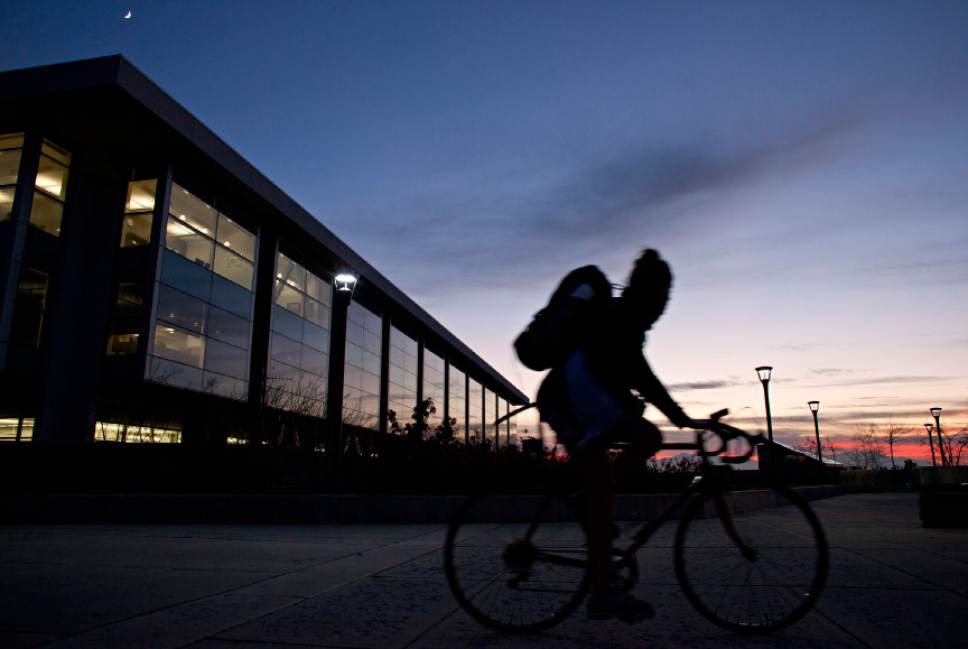This is an archived article that was published on sltrib.com in 2017, and information in the article may be outdated. It is provided only for personal research purposes and may not be reprinted.
Mandatory assault prevention training, increased lighting on campus, additional support faculty and a comprehensive website are all part of a roughly $390,000 new plan to boost safety at the University of Utah.
The strategy, based on the recommendations of a campus safety task force, was presented to members of the U. board of trustees Wednesday and approved by U. President David Pershing.
It calls for $388,000 to be spent on safety enhancements, including an online sexual assault awareness course that will be required of all students and newly hired campus employees; an additional victim advocate at the university's Center for Student Wellness; and the promotion to full-time status for the Women's Resource Center staff counselor.
"There is no place for violence, sexual harassment or sexual assault at the University of Utah," Pershing said in a statement. "It is a high priority for me and all the members of my administrative team to do all we can to support those who experience trauma — in any form — and at the same time, to promote awareness of and educate campus community members about our expectations for campus culture."
Pershing created the task force in January, citing "crime on campuses around the country" and after backlash from students and community members concerned about the university's response to instances of sexual assault.
Following one of those instances — an alleged Halloween rape of a student in the Merrill Engineering Building — Pershing distributed a campuswide email in which University Police Chief Dale Brophy stated there was no proof the attack occurred. "We are not calling into question that this person may have experienced something terrible at some point in her life," Brophy said, "but we are not able to find evidence that a crime occurred at the place, date and time reported."
Michele Ballantyne, associate general counsel for the U. and co-chairwoman of the task force, said mandatory training will include information on reporting assaults and available campus resources, as well as bystander prevention instruction and guidance on affirmative consent.
That type of training is increasingly common at U.S. universities, Ballantyne said, and a necessary part of shifting campus culture.
"Consent always has been the standard," she said. "But really, it is affirmative, unambiguous consent and it is important for students to understand that."
The task force recommendations also include a one-year awareness campaign to promote a new website, described as a centralized source of information on the reporting and prevention of sexual assault, with additional tabs for emergency and physical safety, campus climate and diversity and training resources.
Ballantyne said the task force will continue its work as university administrators enact its recommendations and look for further actions to enhance campus and student safety.
The changes come during a search for a new president to replace Pershing, but Ballantyne did not anticipate the transition to new leadership to diminish support for the task force's efforts.
"Every president will have his or her priorities, but this is really a nationwide concern," she said. "You can't achieve perfection in four months, of course. We do want this conversation to continue."
Pershing thanked the task force for its work on Wednesday, while describing the recommendations as "solid first steps."
"Over a few short months, they accomplished much," Pershing said. "Is our work complete? No, there is more to do to strengthen safety on our campus and support the needs of those who have experienced trauma."
Twitter: @bjaminwood



